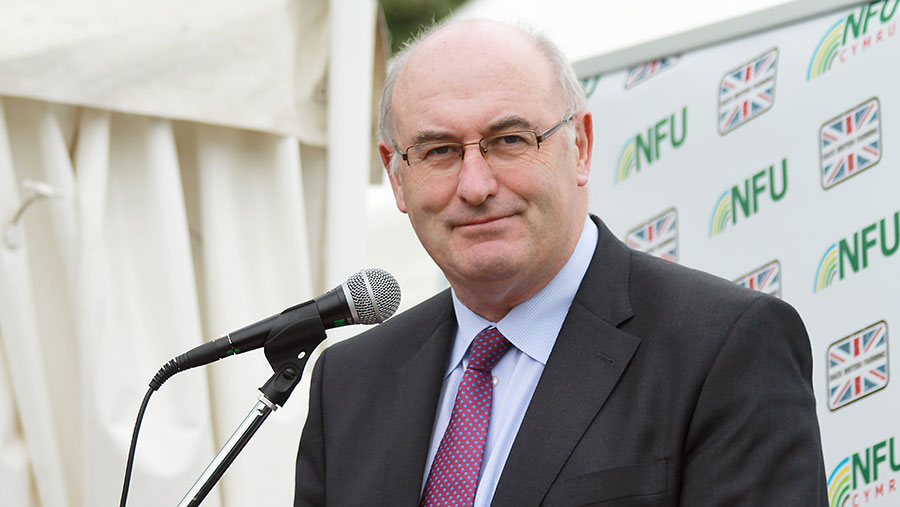UK’s ‘no-deal’ Brexit tariffs illegal, warns farm commissioner
 Phil Hogan
Phil Hogan EU farm commissioner Phil Hogan has said the UK’s planned import tariffs, to be applied in the event of a no-deal Brexit, would be illegal under World Trade Organization (WTO) rules.
The schedule of imports was tabled by the department of international trade last week and would see full EU tariffs applied to sheepmeat, reduced tariffs for beef, dairy and poultry, but zero tariffs for cereals and eggs.
See also: New post-Brexit tariff plans help sheep, but hit other sectors
The chances of them coming into play are thought to be slim following the vote by parliament last week to reject leaving the EU without a deal, but that still remains the default position legally and may yet happen.
But speaking to journalists in Brussels after this week’s agriculture council, Mr Hogan said the tariffs proposed by the UK would not meet WTO rules.
‘Vulnerable’
Mr Hogan singled out beef and cheese as being particularly vulnerable to import tariffs, especially for exporters in France, Germany, Belgium, the Netherlands, Ireland and Denmark.
“I believe that these particular proposals are illegal under WTO rules – and the fact that the UK used the word ‘temporary’ means they probably accept that as well,” he said.
“But there was a political dynamic requiring the UK to make these proposals last week and there is a long way to go in terms of agreeing a schedule of tariffs that would be acceptable under WTO rules.
“I would point out also that the EU, in the event of a no-deal Brexit, will be introducing our external tariffs as well,” he added.
Smugglers’ backdoor
The Farmers Union of Wales has also questioned the tariffs’ legality – in particular the notion that there would be a tariff exemption for imports coming into Northern Ireland from the Republic of Ireland.
“If the government said it was going to apply tariffs to all imports except those entering the UK from Germany, without any form of trade deal in place, this would clearly be a breach of WTO rules,” said FUW head of policy, Nick Fenwick.
“The same principle applies to imports or movements of goods from any EU member state, including the Republic of Ireland – irrespective of whether the border is on the land or in the sea.”
Dr Fenwick said the government’s plans made no sense and was effectively a back-door for smugglers.
Barren cages
Meanwhile, egg producers have expressed outrage that the government’s contingency plans for a no-deal Brexit would afford no tariff protection for their sector.
In an open letter to Defra secretary Michel Gove, the British Egg Industry Council, the RSPCA and Compassion in World Farming have said this could pave the way for imports of cheap eggs from barren battery cages – systems that have been illegal in the UK since 2012.
“This is extremely damaging for animal welfare and a serious breach of trust by a government which seems to have lost its way on hen welfare,” said BEIC chairman Andrew Joret.
